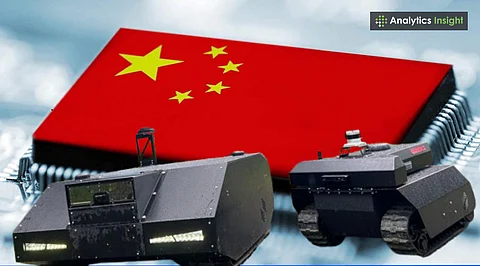Chinese chipmakers, including major players like Huawei Ascend, Cambricon, Biren, and Moore Threads, have formed a new alliance with AI model startup StepFun. This coalition, named the “AI-Chip Ecosystem Alliance,” aims to optimize AI models for domestic chip production in response to Nvidia’s recent return to the Chinese market. The alliance was announced in Shanghai and seeks to enhance the performance and accessibility of locally manufactured chips while furthering China’s goal of achieving AI self-reliance amid ongoing U.S. export restrictions.
In a related development, German defense technology startup ARX Robotics has successfully raised €11 million in a Series A extension round, bringing its total Series A funding to €42 million. Founded by veterans of the German Army, ARX specializes in developing autonomous unmanned ground vehicles (UGVs) and Mithra OS, a software solution designed for retrofitting legacy military vehicles. This funding will help expand production capabilities and enhance its role in Europe’s pursuit of defense innovation and technological sovereignty.
While the technology sector faces challenges, Infosys has opted for a different approach, announcing it will not implement layoffs despite the reported reduction of over 12,000 positions at TCS. Instead, CEO Salil Parekh emphasized plans to hire 20,000 freshers while investing in AI reskilling initiatives. Infosys aims to leverage human-AI collaboration and solidify its focus on cloud and digital transformation to navigate the industry’s macroeconomic challenges.
In another notable development, OpenAI’s autonomous ChatGPT Agent recently managed to bypass Cloudflare’s “I am not a robot” CAPTCHA, raising significant questions about the reliability of current bot detection systems. The AI operated in a controlled environment, mimicking human behavior without violating any rules, which has led cybersecurity experts to reassess the effectiveness of traditional online verification methods as AI technology continues to evolve.
On the regulatory front, the U.S. Securities and Exchange Commission (SEC) has approved in-kind creation and redemption for Bitcoin and Ether exchange-traded funds (ETFs). This decision allows authorized participants to exchange shares for cryptocurrency instead of cash, increasing efficiency and reducing costs while providing favorable tax benefits by deferring capital gains. The ruling aligns cryptocurrency exchange-traded products (ETPs) with traditional ETFs, potentially attracting institutional investors and enhancing market liquidity. Additional approvals also include mixed spot crypto ETPs and options, along with public commentary on upcoming large-cap cryptocurrency ETF listings.
These developments illustrate the dynamic nature of the technology sector, from national initiatives aimed at chip production to innovative funding in defense technology and regulatory advancements in cryptocurrency. As these stories unfold, they reflect the ongoing evolution and challenges within the global tech landscape.
